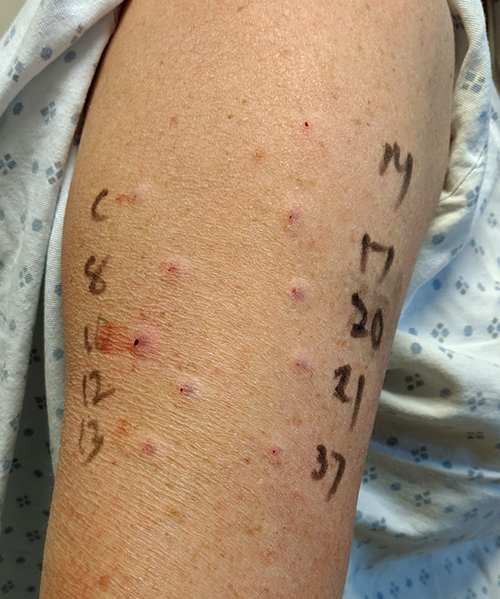Out of the 25 million people who have asthma, about 60% of them have allergic asthma. If you have allergic asthma, this means allergens trigger asthma symptoms.
An allergen is something that causes an allergic reaction. It can enter your body in different ways. They can be inhaled, swallowed, touched or injected. If you are allergic to something, your immune system will react and trigger inflammation. In allergic asthma, it will trigger swelling in your airways, making it hard to breathe.
Some of the most common allergens are:
How Does a Doctor Diagnose Allergic Asthma?
A doctor can use a combination of lung function tests to diagnose asthma and allergy tests, such as skin and blood tests, to confirm allergies.

They will also do a physical exam and ask you about your medical history. If you were diagnosed with asthma as a child, you most likely have allergic asthma.
How Is Allergic Asthma Treated?
Treating your allergies may improve your asthma. So your doctor may add allergy medicines, such as antihistamines and nasal sprays, to your asthma treatment plan. They will note them on your Asthma Action Plan.
Along with these medicines, they will also have you reduce triggers in your environments. They may also recommend immunotherapy to treat your allergies. The two types of immunotherapy are:
- Allergy shots
- Sublingual immunotherapy (SLIT)
If allergy treatments and allergen control don’t help, your doctor may prescribe a biologic that targets IgE, the antibodies that cause an allergic response.
How Can Immunotherapy Help Allergic Asthma?
With allergy shots, each shot has very small amounts of the allergen that are injected each office visit until you react less to it. The dose of the allergen increases over time. Some people notice rapid improvement of asthma symptoms, but it may take up to one year. The treatment may continue for three to five years.
Allergy shots can work well for some people with allergies to pollen, pets, dust, bees or other stinging insects.
SLIT is immunotherapy the goes under the tongue. It is not used for people with severe persistent asthma or uncontrolled asthma. There is a higher risk of anaphylaxis, a severe allergic reaction. SLIT tablets are currently available for dust mites, grass and ragweed.
Treating your allergies may help you reduce asthma symptoms and keep your asthma under control. If you think you may have allergic asthma, see a board-certified allergist for testing and treatment options.


Comments (2)